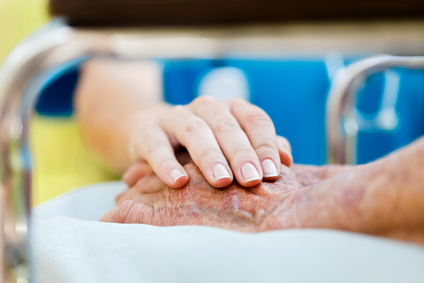WCOE: “Why I Hope to Die at 75” and a New IOM Report on Quality and End of Life Preferences
| What Caught Our Eye (WCOE) Each week, we take a closer look at the cancer policy articles, studies, and stories that caught our attention. |

- Are we finally ready to address the repeated recommendations in these series of reports and to make it possible for our healthcare system, providers of care, and our religious leaders to be more ready to assist people in making difficult decisions about how to die well?
One of the articles that caught our eye this week can be found in The Atlantic magazine, written by a national leader in ethics and healthcare policy, Dr. Ezekiel J. Emanuel. His article, published September 17, entitled “Why I Hope to Die at 75” did not surprise us with its provocative title. The message for individuals reading the article is simple: Live well; die quickly.
Dr. Emanuel will hopefully be able fulfill his goal of not living too long to cause others to remember him as anyone but his vibrant self. His call is not for assisted suicide or euthanasia—both of which he rejects. However, being an ethicist and policymaker, Dr. Emanuel touches on essential issues to consider, e.g., the aging of our population who want more and more length of years in spite of very ill health, increasingly accompanied by financial bankruptcy for families, a decline in one’s adjustment to their condition, and a diminishment of one’s happiness—a picture of a future that is unsustainable by our current health care system. Moreover, the lack of good quality of our lives when aging in declining health, increasingly with prospects of dementia in addition to other ailments, leaves our loved ones with very sad final memories of not how well we lived, but how poorly we died.
Death is an experience we are ALL going to have. Sadly, but realistically, a cancer diagnosis presents an opportunity to talk about what kind of life and death we would wish to have if we are unfortunate enough to be among the nearly half of those diagnosed who die from it each year. Dr. Emanuel’s piece is less provocative than its title, though it will be too provocative for some readers and those with parochial views on who or what should be the arbiters of life and death. However, it resonates with many of us who have watched so many people with cancer and other life-limiting illnesses live out their last days and weeks having become a shell of their former selves—not adequately treated for the distress they are in; no longer able to live a high quality of life; and yet hanging on to the slimmest possibility to be ale to reach an important milestone, event, or unfulfilled dream as they approach dying.
In summary, we agree with Dr. Emanuel and the key points in his article that there should be an impetus to have conversations among your family, religious leaders, elected officials, and trusted friends and colleagues about how we behave when our lives are compromised by failing health–how we will make the choices about what measure of our life’s quality and our happiness are sufficient to want more length of years. Our question is, are we ready for that conversation as a society? Our hope would be a resounding, “yes.” But, like religion and politics, talking about death and dying has become the third rail among topics to avoid in too many families, let alone in social discourse with friends and colleagues.
We recommend the reading of this article to realize the importance of his deeper messages that have policy implications for our policymakers and nonprofit health organizations like NCCS.
As a footnote to the piece in The Atlantic, there have been a multitude of studies on death and dying over many years by the Institute of Medicine (IOM) and other organizations. We recommend policymakers as well as individuals take the opportunity to read both Dr. Emanuel’s piece, and at least the summary of the newest report out of the IOM, Dying in America: Improving Quality and Honoring Individual Preferences Near the End of Life, which was (coincidentally?) published on the same day as his piece in The Atlantic.
A question for all of us: Are we finally ready to address the repeated recommendations in these series of reports and to make it possible for our healthcare system, providers of care, and our religious leaders to be more ready to assist people in making difficult decisions about how to die well? As the latest IOM report states:
“A substantial body of evidence shows that broad improvements to end-of-life care are within reach. In Dying in America, a consensus report from the Institute of Medicine (IOM), a committee of experts finds that improving the quality and availability of medical and social services for patients and their families could not only enhance quality of life through the end of life, but may also contribute to a more sustainable care system.”
| Post by Shelley Fuld Nasso. Connect with Shelley on Twitter @sfuldnasso. |






